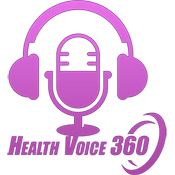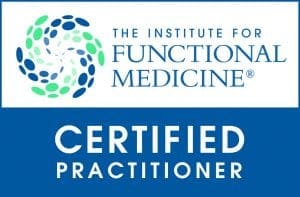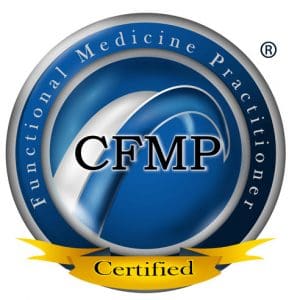Can individuals dealing with narcolepsy find ways to reduce its effects on the musculoskeletal system and improve sleep?
Table of Contents
What Is Narcolepsy?
Around the world, many individuals have gotten 8 hours of sleep by doing errands to function throughout the day. Sometimes, it is important to take naps between certain hours of the day to give the body a chance to rest and continue for the rest of the day before going to bed. However, more individuals have experienced sleep disturbances like scrolling through their phones, dealing with chronic conditions like migraines or insomnia, or not having a proper sleep schedule that can negatively impact their sleep. One of the sleep disturbances is narcolepsy, which can cause individuals to have sleep issues throughout the day and even affect their musculoskeletal system. In today’s article, we will be looking at what narcolepsy is, its symptoms, how it affects the muscles, and what treatments can reduce narcolepsy and improve sleep. We associate with certified medical providers who inform our patients of the effects narcolepsy causes on a person and their bodies. While asking important questions to our associated medical providers, we advise patients to include various techniques to reduce the overlapping risk profiles related to narcolepsy and help improve their sleep quality. Dr. Alex Jimenez, D.C., envisions this information as an academic service. Disclaimer.

Do you often feel extremely tired throughout the day, and is it causing you to take a nap in weird places? Do your arms and legs feel weak from carrying various objects? Or do you feel general aches or pains in your neck, shoulders, and back? Many of these scenarios are associated with sleep disturbances that can affect the musculoskeletal system. One of the sleep disturbances is narcolepsy, characterized by the onset of rapid eye movement (REM) sleep that can correlate with the lack of orexin neurons from the central nervous system, thus causing daytime sleepiness. (Slowik et al., 2024) Narcolepsy has two forms depending on the severity of the condition: type 1 (narcolepsy with cataplexy) and type 2 (narcolepsy without cataplexy). Depending on the severity of narcolepsy, it can disrupt the brain from generating and regulating REM sleep and cause issues for the body when it is awake during the day. (Thorpy et al., 2024) This chronic sleep disorder can disrupt a person’s quality of life and affect their socio-economic lifestyle.
Symptoms
Narcolepsy has four main symptoms that can affect a person who is experiencing this condition. The four symptoms are:
- Excessive daytime sleepiness causes people to fall asleep suddenly during mid-conversation or when doing activities.
- Cataplexy: Sudden or temporary episodes of muscle weakness in the upper and lower musculoskeletal quadrants. (Sunwoo, 2021)
- Sleep hallucinations: This can cause individuals to hallucinate visions, causing the symptoms to be mistaken for psychotic symptoms. (Hanin et al., 2021)
- Sleep paralysis: When the individual is partly awake but cannot move.
Additionally, when narcolepsy starts to affect a person, it could lead to the development of comorbidities like obesity and musculoskeletal issues that may lead to sleep disturbances to take effect. (Maski et al., 2022)
How Does It Affect Muscles?
Now, narcolepsy can affect the musculoskeletal system as the central nervous system has neurons known as orexin to stimulate the body’s muscles, tissues, and vital organs. When narcolepsy starts to affect orexin, it can cause overlapping risk profiles to the muscles that become weak, and environmental factors like obesity and metabolic syndrome can complicate diagnosing narcolepsy. (Dhafar & BaHammam, 2022). Now, as environmental factors do play a huge part in the body, causing people to develop narcolepsy, it is important to realize that when muscle weakness can contribute to the issue, it can lead to disastrous consequences. Strong emotions that are associated with muscle weakness for narcoleptic individuals can cause their body to collapse and lead to cataplexy. Cataplexy in narcoleptic individuals often has a sequence starting from the top of the head down to the legs, causing muscle tone loss, and is frequently mistaken for seizures. (Latorre et al., 2022) Luckily, there are ways to manage narcolepsy and improve sleep quality.
The Non-Surgical Approach To Wellness- Video
Narcolepsy Treatments To Improve Sleep
When it comes to managing narcolepsy and its associated symptoms, many people can make small changes to their daily routine and incorporate treatment to improve their sleep quality and their lifestyle, too. Many individuals with narcolepsy take medication to not only stimulate their central nervous system neurons but also to reduce daytime sleepiness. Additionally, non-surgical treatments like chiropractic care can help stretch and restore muscle weakness associated with narcolepsy to help individuals manage their symptoms. Other treatments include:
- Take short naps on a comfortable mattress.
- Maintaining a proper sleep schedule.
- Exercise regularly to reduce excessive daytime sleepiness
- Eating a well-balanced, healthy meal
Incorporating these small changes as part of a daily routine can help mitigate narcolepsy and its associated symptoms. All in all, many individuals with narcolepsy can manage their symptoms and live a healthier life.
References
Dhafar, H. O., & BaHammam, A. S. (2022). Body Weight and Metabolic Rate Changes in Narcolepsy: Current Knowledge and Future Directions. Metabolites, 12(11). https://doi.org/10.3390/metabo12111120
Hanin, C., Arnulf, I., Maranci, J. B., Lecendreux, M., Levinson, D. F., Cohen, D., & Laurent-Levinson, C. (2021). Narcolepsy and psychosis: A systematic review. Acta Psychiatr Scand, 144(1), 28-41. https://doi.org/10.1111/acps.13300
Latorre, D., Sallusto, F., Bassetti, C. L. A., & Kallweit, U. (2022). Narcolepsy: a model interaction between immune system, nervous system, and sleep-wake regulation. Semin Immunopathol, 44(5), 611-623. https://doi.org/10.1007/s00281-022-00933-9
Maski, K., Mignot, E., Plazzi, G., & Dauvilliers, Y. (2022). Disrupted nighttime sleep and sleep instability in narcolepsy. J Clin Sleep Med, 18(1), 289-304. https://doi.org/10.5664/jcsm.9638
Slowik, J. M., Collen, J. F., & Yow, A. G. (2024). Narcolepsy. In StatPearls. https://www.ncbi.nlm.nih.gov/pubmed/29083681
Sunwoo, J. S. (2021). Narcolepsy, autoimmunity, and influenza A H1N1 vaccination. Encephalitis, 1(2), 31-35. https://doi.org/10.47936/encephalitis.2021.00010
Thorpy, M. J., Siegel, J. M., & Dauvilliers, Y. (2024). REM sleep in narcolepsy. Sleep Med Rev, 77, 101976. https://doi.org/10.1016/j.smrv.2024.101976
Disclaimer
General Disclaimer
Professional Scope of Practice *
The information herein on "Exploring Narcolepsy: Effects on Sleep Patterns" is not intended to replace a one-on-one relationship with a qualified health care professional or licensed physician and is not medical advice. We encourage you to make healthcare decisions based on your research and partnership with a qualified healthcare professional.
Blog Information & Scope Discussions
Welcome to El Paso's Premier Wellness and Injury Care Clinic & Wellness Blog, where Dr. Alex Jimenez, DC, FNP-C, a Multi-State board-certified Family Practice Nurse Practitioner (FNP-BC) and Chiropractor (DC), presents insights on how our multidisciplinary team is dedicated to holistic healing and personalized care. Our practice aligns with evidence-based treatment protocols inspired by integrative medicine principles, similar to those found on this site and our family practice-based chiromed.com site, focusing on restoring health naturally for patients of all ages.
Our areas of multidisciplinary practice include Wellness & Nutrition, Chronic Pain, Personal Injury, Auto Accident Care, Work Injuries, Back Injury, Low Back Pain, Neck Pain, Migraine Headaches, Sports Injuries, Severe Sciatica, Scoliosis, Complex Herniated Discs, Fibromyalgia, Chronic Pain, Complex Injuries, Stress Management, Functional Medicine Treatments, and in-scope care protocols.
Our information scope is multidisciplinary, focusing on musculoskeletal and physical medicine, wellness, contributing etiological viscerosomatic disturbances within clinical presentations, associated somato-visceral reflex clinical dynamics, subluxation complexes, sensitive health issues, and functional medicine articles, topics, and discussions.
We provide and present clinical collaboration with specialists from various disciplines. Each specialist is governed by their professional scope of practice and their jurisdiction of licensure. We use functional health & wellness protocols to treat and support care for musculoskeletal injuries or disorders.
Our videos, posts, topics, and insights address clinical matters and issues that are directly or indirectly related to our clinical scope of practice.
Our office has made a reasonable effort to provide supportive citations and has identified relevant research studies that support our posts. We provide copies of supporting research studies upon request to regulatory boards and the public.
We understand that we cover matters that require an additional explanation of how they may assist in a particular care plan or treatment protocol; therefore, to discuss the subject matter above further, please feel free to ask Dr. Alex Jimenez, DC, APRN, FNP-BC, or contact us at 915-850-0900.
We are here to help you and your family.
Blessings
Dr. Alex Jimenez DC, MSACP, APRN, FNP-BC*, CCST, IFMCP, CFMP, ATN
email: coach@elpasofunctionalmedicine.com
Multidisciplinary Licensing & Board Certifications:
Licensed as a Doctor of Chiropractic (DC) in Texas & New Mexico*
Texas DC License #: TX5807, Verified: TX5807
New Mexico DC License #: NM-DC2182, Verified: NM-DC2182
Multi-State Advanced Practice Registered Nurse (APRN*) in Texas & Multistate
Multistate Compact RN License by Endorsement (42 States)
Texas APRN License #: 1191402, Verified: 1191402 *
Florida APRN License #: 11043890, Verified: APRN11043890 *
* Prescriptive Authority Authorized
ANCC FNP-BC: Board Certified Nurse Practitioner*
Compact Status: Multi-State License: Authorized to Practice in 40 States*
Graduate with Honors: ICHS: MSN-FNP (Family Nurse Practitioner Program)
Degree Granted. Master's in Family Practice MSN Diploma (Cum Laude)
Dr. Alex Jimenez, DC, APRN, FNP-BC*, CFMP, IFMCP, ATN, CCST
My Digital Business Card
RN: Registered Nurse
APRNP: Advanced Practice Registered Nurse
FNP: Family Practice Specialization
DC: Doctor of Chiropractic
CFMP: Certified Functional Medicine Provider
MSN-FNP: Master of Science in Family Practice Medicine
MSACP: Master of Science in Advanced Clinical Practice
IFMCP: Institute of Functional Medicine
CCST: Certified Chiropractic Spinal Trauma
ATN: Advanced Translational Neutrogenomics




















